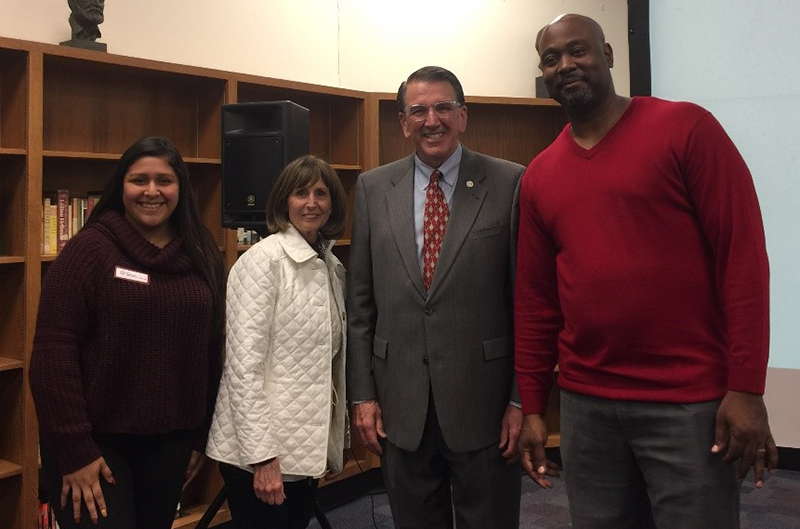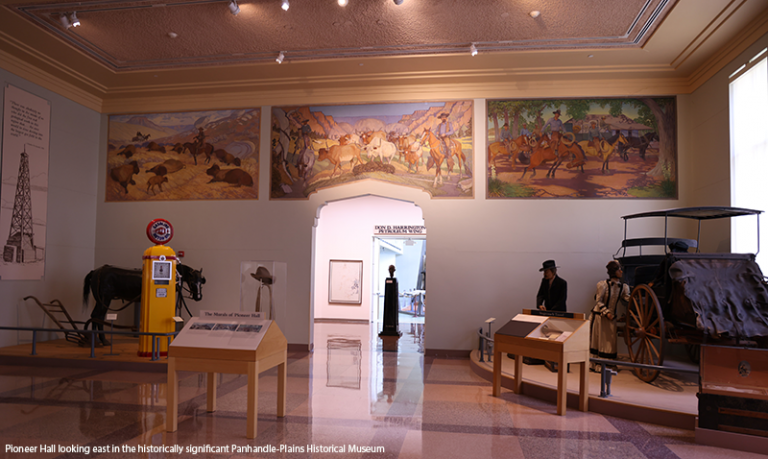
Revised remarks from December 9, 2023, commencement speech at West Texas A&M University.
At the height of the Great Depression, James Trustlow Adams first used the term “American Dream.” He said, among other things, in “The Epic of America,” that America should be “a land in which life should be better and richer and fuller for every man and woman, with opportunity for each according to his and her ability and achievement.”
I believe one of the attractions of our nation that creates pressure at our borders is not people coming here expecting something for nothing. That would not make America an exceptional nation, but a nation of vagrants. Rather, I believe the aspirations of many who desire to live in America share the aspirations that are common to most of us who are Americans. They have dreams. They have aspirations for themselves, their families, their communities, the organizations to which they belong and their houses of worship. Many work hard to attain their dreams. Dreams are not rights given, but opportunities earned. At WT, I sincerely believe this is the case for most students, as it is for all Americans, and vividly pronounced in those students who are the first-in-family to attend college.
I know this feeling. I am the son of first-generation Americans and the first-in-family to graduate college. This created hopefulness for me, a form of hopefulness that I still possess over a century after my grandparents stepped off the boat onto Ellis Island on the one hand and Locust Point in Baltimore on the other, despairingly poor.
Some say the American dream is dead. Others proclaim it a nightmare. They are all wrong. The American dream is alive and well, even when burdened with human imperfections. I see dreams in students every day.
U.S. Magistrate Irma Carrillo Ramirez was recently appointed to the Fifth Circuit in the U.S. Court of Appeals. She is a graduate of West Texas State University, now WT. During her nomination hearing, Carrillo Ramirez talked about her father, a Mexican immigrant, who arrived in the United States under the “Bracero Program” decades ago. He worked the cotton fields in West Texas, where he met her mother, whose family was from South Texas, and also worked those fields.
Judge Carrillo Ramirez said, “I remember as a child very vividly him telling me, Estudia mija, study so that you don’t have to work in the fields like I do. My summers spent hoeing cotton in those fields only served to reinforce this message.” This is the American dream on fire. Fueled by grit. It is as real as my dreams and aspirations, and in all likelihood, as yours. As real as real can be.
Judge Carrillo Ramirez is from Brownfield, Texas. I visited the High School in Brownfield on November 15, 2019. 205 juniors and seniors were present and asked questions about life ahead, college and work. Dr. Gionet Cooper, Brownfield High School Principal, reinforced the importance of a personal plan and personal responsibility. Hope resonated in his words. He inspired me nearly to tears. Virtues are necessary to obtain the American dream, according to Bill Donohue, Ph.D. sociologist from NYU and author of The War on Virtue. Long lists of virtues have value: Hard work, determination and, for many, natural or God-given talents are fundamental to the attainment of the American dream.
Studies by the American Enterprise Institute and the National Opinion Research Center affiliated with the University of Chicago made some noteworthy discoveries. 40% of the respondents said their families lived the American dream. Another 40% said it was in their future – it was coming. 18% said it was out of reach. When queried on what the American dream meant to them, 85% said it meant freedom of choice in how to live one’s life. 83% selected to have a good family life. Interestingly, only 16% said to become wealthy.
From the university perspective, every student has a unique set of aspirations, developed in response to families, faith, friends, hearts, souls and environments that cause dizzying uniqueness. A symphony of dreams that are real and purposeful, but united in civility, one for the other, even when chasms of diverse dimensions exist – E Pluribus Unum.
No matter how proficient a student is at understanding how to solve a quadratic equation, write a compelling paper or think critically to resolve complex problems, my paramount hope for each is that experiences at WT will help lead them on a continual pursuit of intentional citizenship as a path to the American dream. Coupled with this aspiration is a pervasive recognition that there is personal responsibility in its attainment. And, that it comes with hard work and persistence, and is satisfying when achieved.
Some say such aspirations should be inculcated at home or instilled in students before they reach the university. Such a perspective would suggest that the growth of aspiration stops at the campus gate. I believe intentional citizenship may be the most compelling mission for a university in sustaining a republican form of government.
Walter V. Wendler is President of West Texas A&M University. His reflections are available at https://walterwendler.com/.






